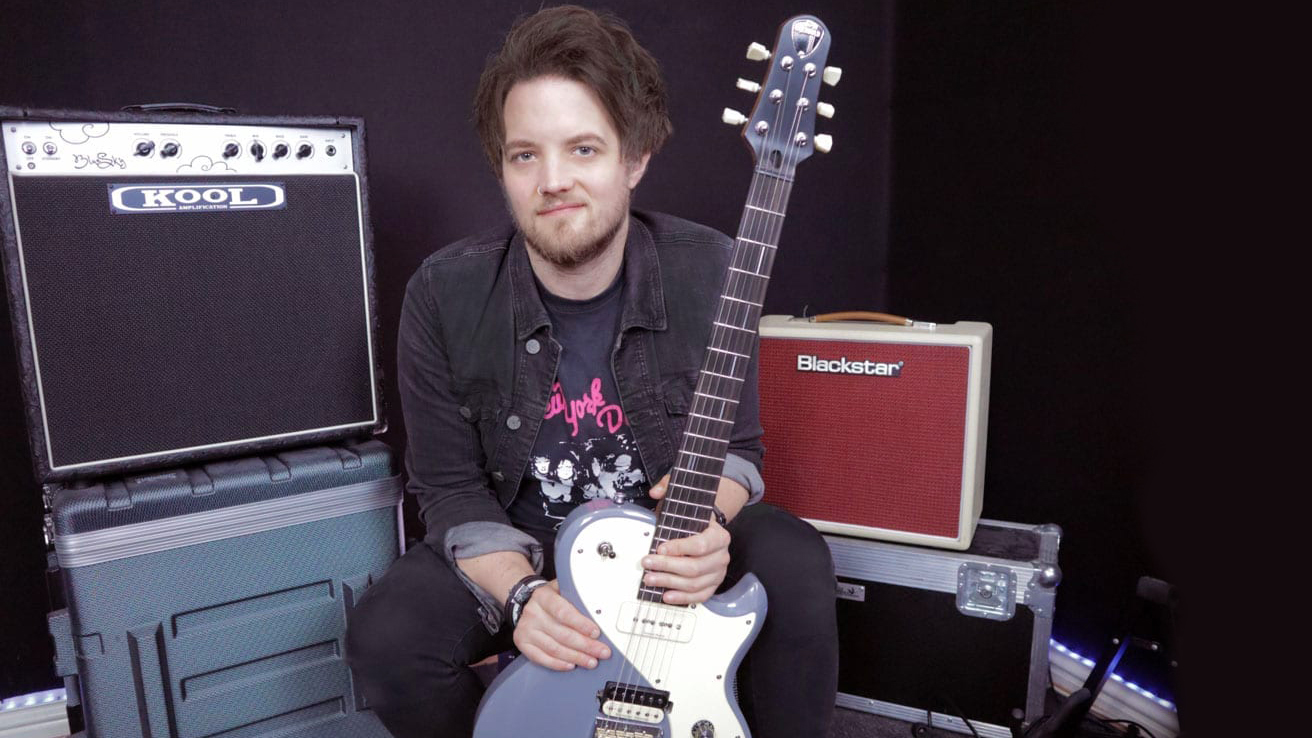
When you start out on your journey as a guitar player, there are a number of roadblocks that you are guaranteed to come up against. These are things that will make you feel like you’ve hit a wall or that you’re unable to progress any further with the instrument.
For most players, these roadblocks usually present themselves as technique-based problems where you find something that you feel like you simply cannot master.
It’s very easy to feel like it’s your own shortcomings, but this is not true, this is something every single guitar player goes through. Including me.
In this article, and accompanying video, I’m going to draw on my own experiences as a teacher, live and recording player to give you five tips you can use right away to start making your guitar playing journey that little bit easier.
1. Make Your Practice Sessions Easier
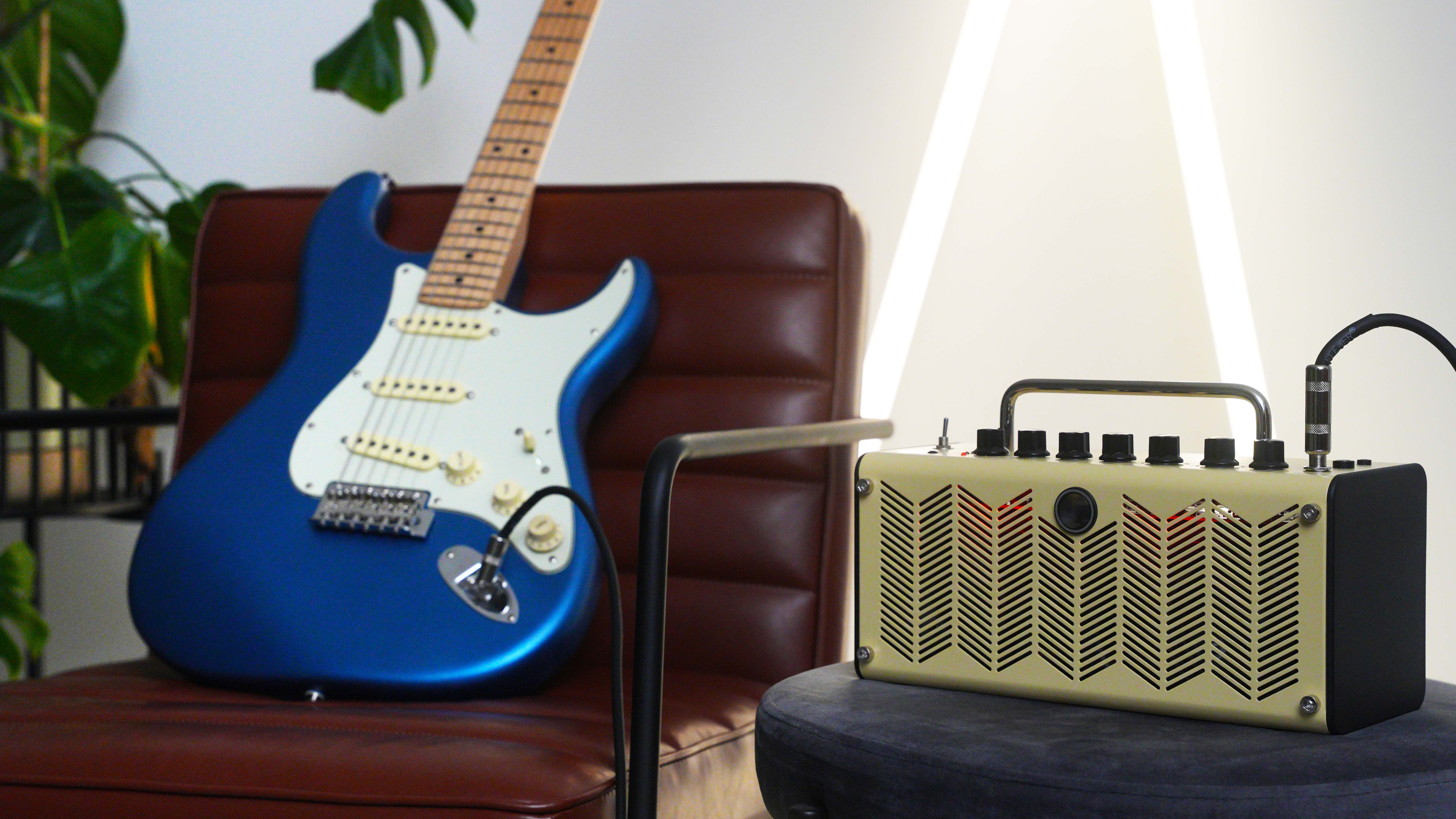
The first thing you can do is to ensure that practice is never a chore. You can make practice sessions, or even the idea of practice sessions, much easier for yourself by following a few simple concepts.
• Keep your guitar where you can see it
This sounds obvious but it's surprising how much of a difference it can make – and it's something I still try to remember even now. Make sure your guitar is on a stand in a place where you’ll see it and easily be able to grab it to play. If you can keep a small practice amp set up beside it, even better. Having the guitar somewhere that you can reach it at any time makes picking it up easier. If you’re putting the guitar away under the bed or in a cupboard in its case, you’re creating a barrier to practice.
• Location
The place you practice is also very important. Try to find a room in your home that is quiet and free of distraction, but also somewhere you can be comfortable while practicing. Having a good chair that helps you maintain good posture while playing is best, as well as having everything you need to complete a session within reach.
• Time
Are you playing guitar at the best times for you? You should also consider when you practice. This might not seem like a major consideration, but it can really help and might free you from a mindset that's not beneficial to your playing. If you’re a morning person, your brain is more receptive to new information and skills early in the day so get your practice in early. If you’re a night owl, practice that little bit later. Work with the time your body most wants to do the work.
2. Structure Your Practice Sessions
There is a big difference between practicing and playing and to progress as a player you need to structure the time you have correctly and effectively.
• Time
The amount of time you can commit will vary depending on your commitments such as work, family and everything else going on around your guitar playing. If you can commit 15-30 minutes a day to practice, that is a good start. More time is a bonus.
Once you know what time you have to work with, you can split that time up accordingly. Try not to spend any of this time working on things you can already do well, this won’t make you progress in the way you want to.
• Focus
Use this time to hone in on new things and also techniques or pieces that you are currently looking to improve on. Spend a larger chunk of the session focusing on your main priority and then the rest of the section to smaller things you’re just getting started with or fine tuning. This way you're not getting overwhelmed and can digest new information and work on muscle memory in a realistic way.
3. Learn things you enjoy
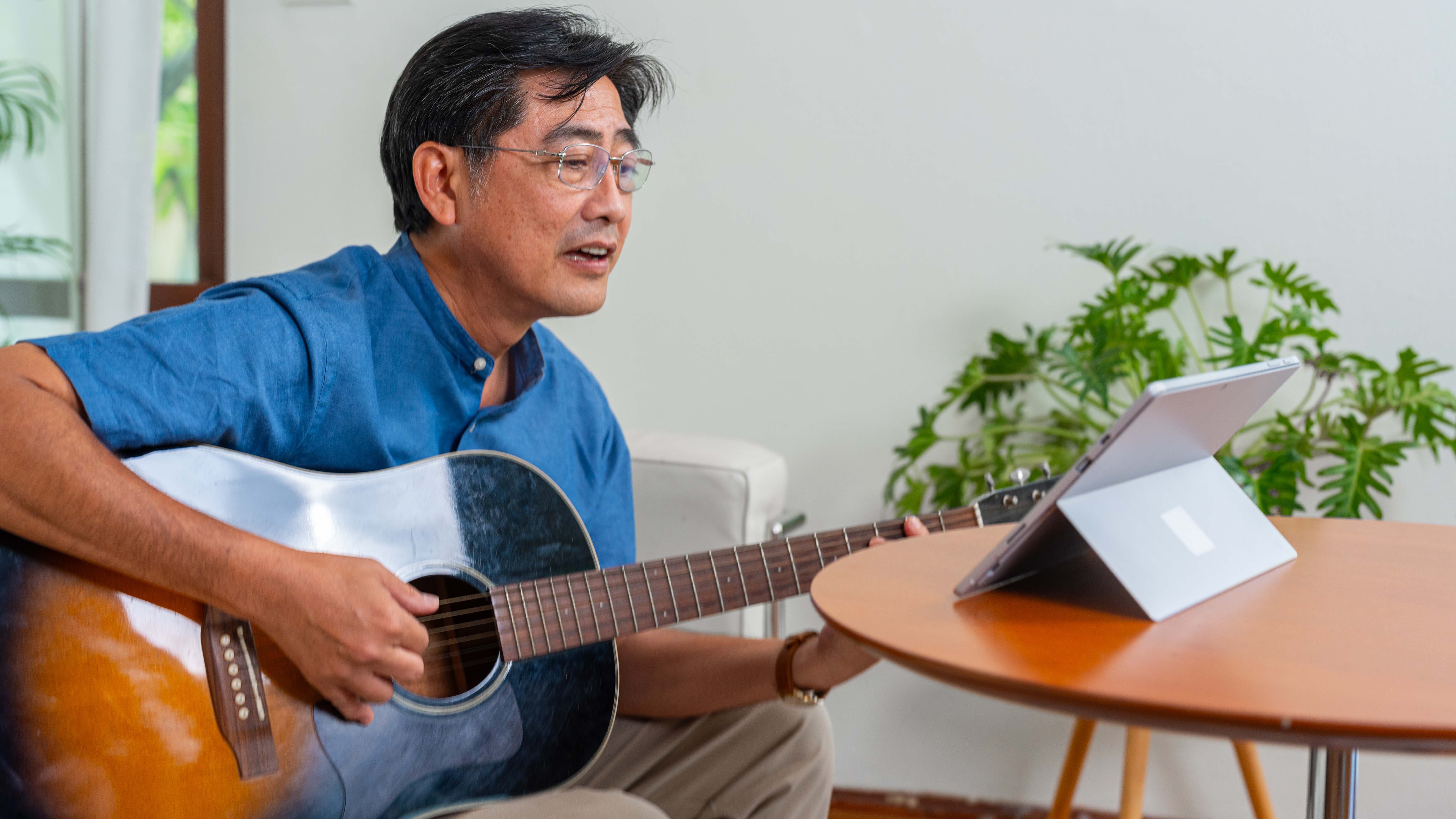
Enjoying the process of learning is a huge part in making yourself feel like you’re improving. Learning things you love can really help this along.
• Pick your favourites
Spend time learning songs, riffs, licks and solos from your favourite artists. Don’t spend too much time learning things that don’t excite you, because you want to feel inspired. You don’t want to feel like playing is a chore.
• Stay inspired
The guitar world is HUGE and there is so much to learn, but in the early stages, I believe you need to focus on what gets you excited about playing. Whatever gets you excited is where you should be focusing your attention - don't feel guilty about that, because it shouldn't feel like work. Use your excitement and enjoyment as leverage to put in practice and push yourself to that next level.
4. Play with other musicians
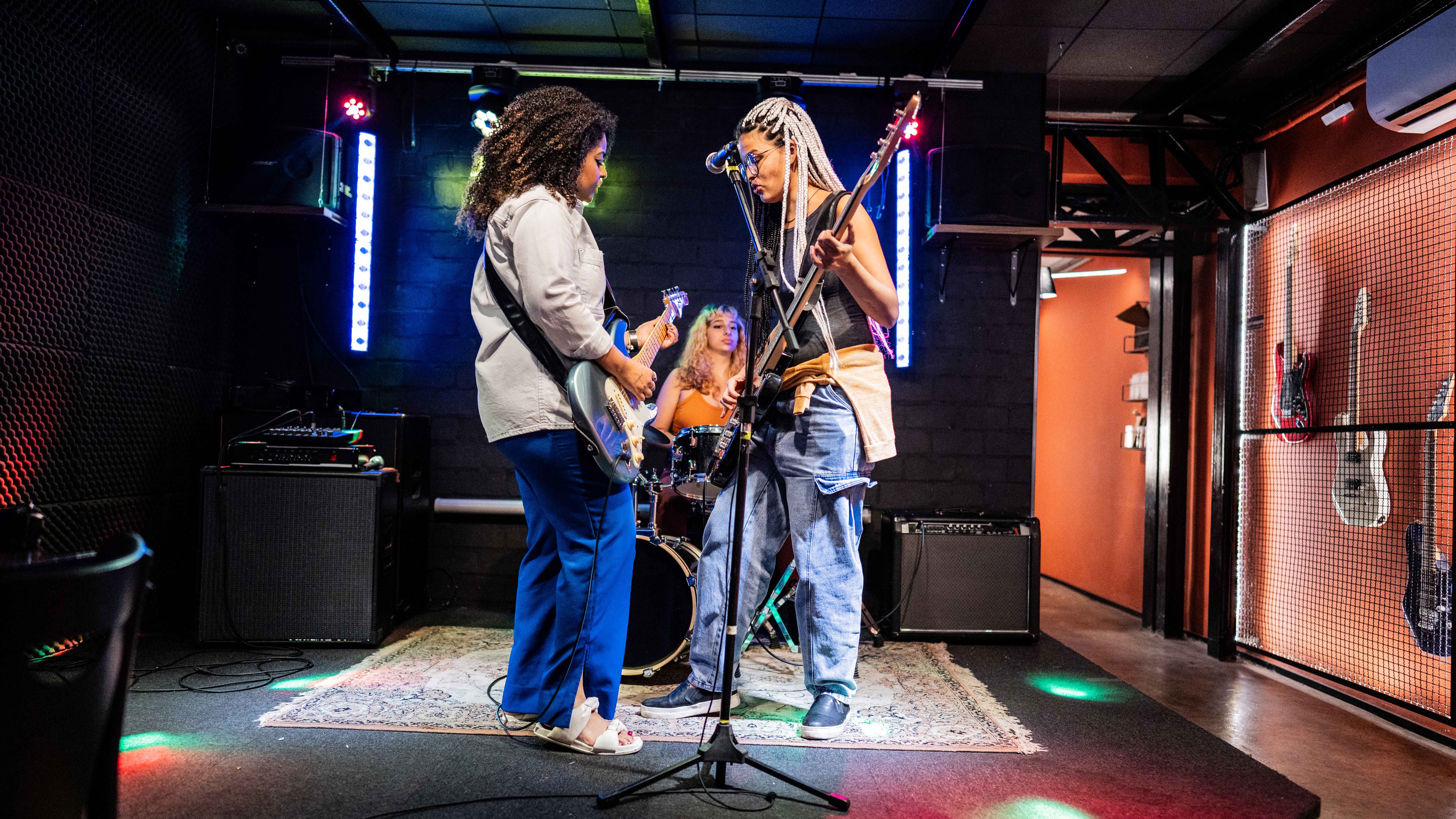
This was a huge breakthrough moment for me when I was in my first year of picking up the guitar. Playing with other musicians is an incredible way to improve your listening skills. When you play with others, you will be listening to what they play alongside what you’re playing. This vastly improves your overall awareness of music.
Spending this time making music with others will improve your sense of rhythm, timing and musicality in ways that are very hard to achieve while playing alone
I cannot stress this enough; if you ever plan to join a band and pursue a career in live music, this is a skill you need to acquire as soon as possible. Spending this time making music with others will improve your sense of rhythm, timing and musicality in ways that are very hard to achieve while playing alone.
If you have any friends who play instruments, get together with them and play something. Not only does this make the learning you’re doing feel like more of a group activity, it’s also just fun to play with and share music with friends.
5. Get your guitar set up properly
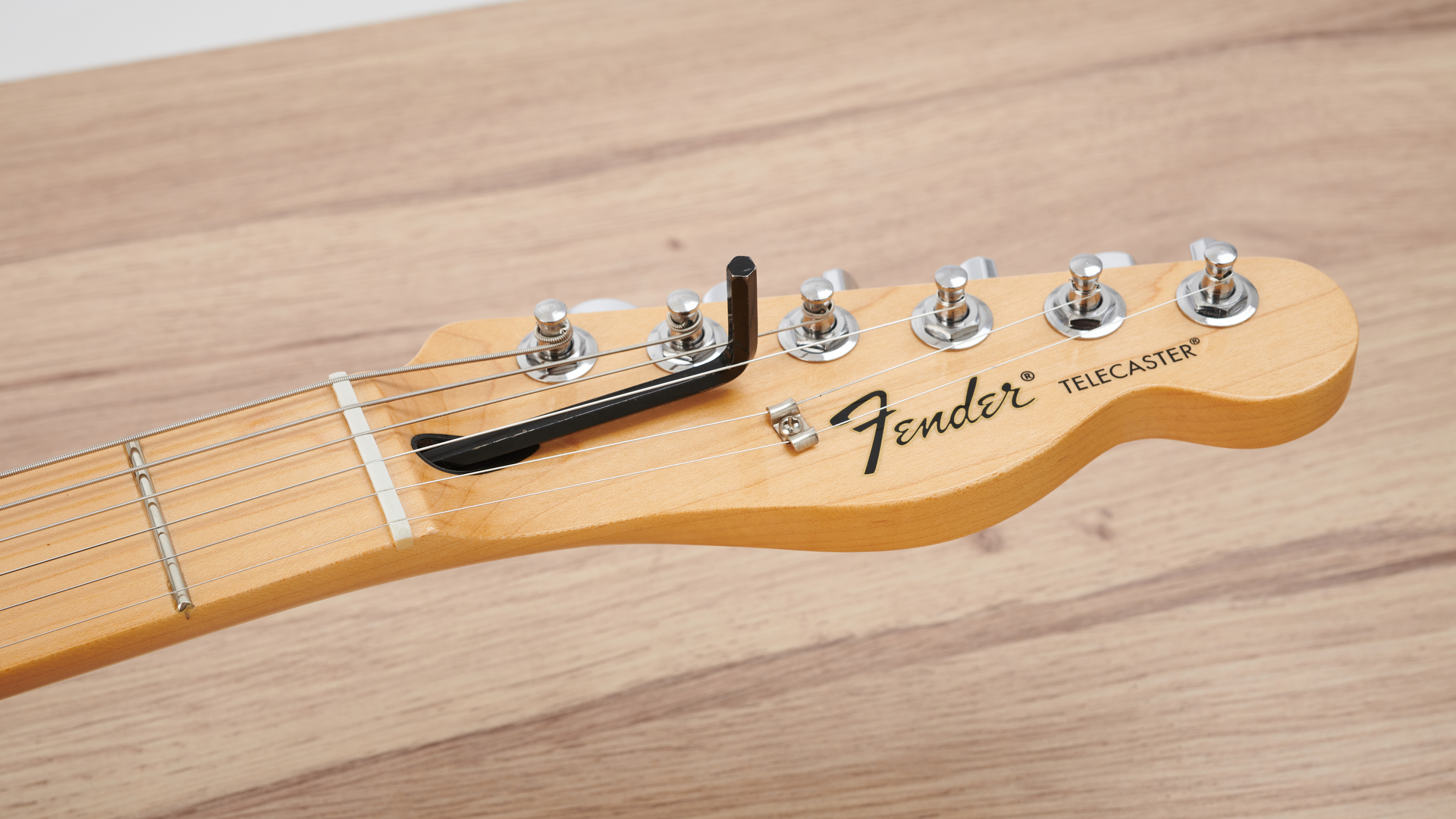
How your guitar feels is also a big factor in how easy you find playing. If your guitar is set up correctly, you will find the playing experience much easier and smoother.
Guitar setups consist of various parts of the guitar being adjusted so that everything feels easy to play and functions correctly. You can learn the skill of setting up a guitar yourself with this MusicRadar guitar setup guide, but if you’re brand new to playing I’d recommend calling your local guitar tech/luthier and asking them to do it for you - especially if it's issues with uneven frets or nut issues causing string buzz. It doesn’t take much time and it's worth the investment.
In my experience the most common setup tweak that makes a big difference is adjusting the truss rod and string action. The string action is the height of the strings from the fretboard. A higher string action means you have to push down further and harder to get the strings to contact the frets. A lower action means you don’t have to use as much finger pressure. Many new players find a lower action makes playing much easier for them.
6. Bonus tip – have fun!
When things get difficult, just remember you’re further along than you were yesterday
This is pretty self-explanatory… Remember, you wanted to do this. You chose to pick up the guitar to follow your own dreams or goals. Don’t forget why you started and try to enjoy every step of the process. When things get difficult, just remember you’re further along than you were yesterday.
The more you enjoy it and the more fun you have, the less energy you will spend worrying about small things and the more energy you will have to focus on growth as a guitarist.
Enjoy every step of the process and you’ll hit your goals before you know it!







